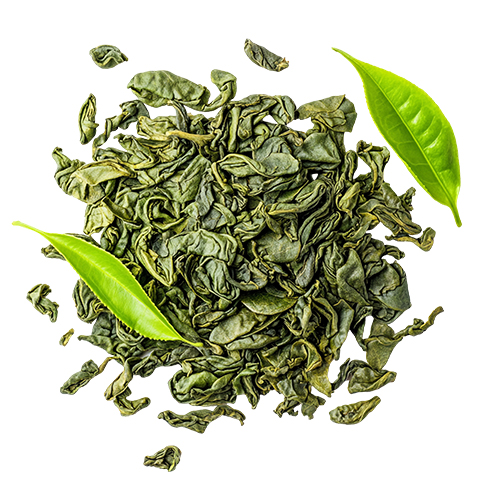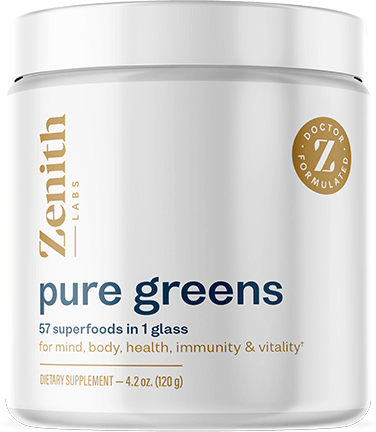Green tea has been consumed as a beverage and used as medicine for thousands of years. Orally, green tea is used to improve cognitive performance and mental alertness. It’s also used to treat stomach disorders, vomiting, diarrhea and headaches. It’s used for depression, non-alcoholic fatty liver disease, all sorts of colitis, weight loss, osteoporosis, and several different types of cancer. It’s an antiviral for human papilloma virus and warts, Crohn’s disease, Parkinson’s disease, cardiovascular disease, both high and low blood pressure, diabetes, lupus, chronic fatigue syndrome, dental cavities, kidney stones, and skin damage.
It is rather amazing how something so simple and basic can be easily implemented as part of your daily routine to create positive benefits for your health and wellbeing.
What Does Green Tea Contain?

The applicable parts of green tea are found in the leaf bud, leaf, and stem. Green tea is different than black tea or oolong because it’s not fermented (black tea is fully fermented and oolong is partially fermented). Green tea is produced by steaming fresh tea leaves at high temperatures. This process inactivates certain oxidizing enzymes, freeing the polyphenols and the flavonoids. Flavonoids include EGCG, EGC, ECG and EC (also referred to as catechins).

EGCG makes up about 50-60% of green tea catechins. The flavonoids in green tea include kaempferol, quercetin and others. Green tea also contains vital estrogens including beta-sitostero, lignum precursors, as well as xanthines. Green tea also contains about 2 to 4% caffeine or 80 to 100 milligrams per cup. Another constituent of green tea is an important amino acid called L-Phenylalanine.
What Can Green Tea Help With?
Let’s talk about some of the specific conditions that green tea has been studied for.

1. Arthritis. The catechins in green tea might help reduce inflammation and protect against cartilage damage.
2. Cancer. Studies have shown that the antioxidant, anti-inflammatory catechins and polyphenols can be protective against the development of certain types of cancers. It’s not a treatment, but it helps to reduce risk factors.
3. Anticoagulant. There’s some evidence that green tea is suppressive for thromboxane and the development of a platelet aggregation. This is helpful for reducing risk factors of cardiovascular disease.
4. Anti-inflammation. The catechins in green tea might have some pretty substantial anti-inflammatory activity, in fact, green tea is used as a laboratory standard for Cox-1 Inhibition, which is anti-inflammatory.

5. Improve good cholesterol. Green tea helps to reduce low density lipoproteins and low density cholesterol, and may improve and increase good cholesterol HDL.
6. Protection against oxidative damage. In human research, green tea and it’s catechins have been shown to protect against the oxidative damage, especially those caused by exercise and smoking. We know that the polyphenols, flavonoids, and catechins are antiviral. They have the potential to inhibit the human papilloma virus and the virus that causes warts.
7. Reduces blood pressure and cardiovascular disease. Some research suggests that drinking green tea reduces the risk of developing high blood pressure. Some clinical research also suggests that taking green tea extract reduces blood pressure in patients with or without high blood pressure.

8. Improves cognitive health. Green tea contains 2 to 4% caffeine or roughly 80 to 100 milligrams per cup. Possible mechanisms for helping with memory lapses and cognitive decline and cognitive health include adenosine receptor blockade and phosphodiesterase inhibition.
9. Anti-aging. Some evidence suggests that oral and topical application of products containing green tea may improve skin elasticity, hydration, and skin roughness.
10. Immune health. It helps to stimulate the immune system. There’s some evidence from clinical research that taking green tea formulations reduces the risk of developing cold or flu like symptoms.

11. Weight loss. Green tea is commonly used for weight loss. Evidence from clinical trials are mixed, although some studies do show that weight loss, with specific products, can occur from taking green tea.
At Zenith Labs, we’ve actually created a supplement called Pure Greens, which contains high amounts of green tea plus dozens of other superfood extracts that make it a powerful antioxidant. Try it out and let us know how you feel!
 If you liked this video/article and found it useful, do share it with your friends and loved ones. Subscribe to the Youtube channel for weekly tips on new tools and techniques to improve your health and well-being.
If you liked this video/article and found it useful, do share it with your friends and loved ones. Subscribe to the Youtube channel for weekly tips on new tools and techniques to improve your health and well-being.
I believe in the original meaning of the word doctor, ‘docere’, which means teacher. I’m here to help educate you on how to take care of yourself in ways that you may not have heard of before, but that are effective. I always want to hear your ideas and feedback so be sure to leave me comments below!










